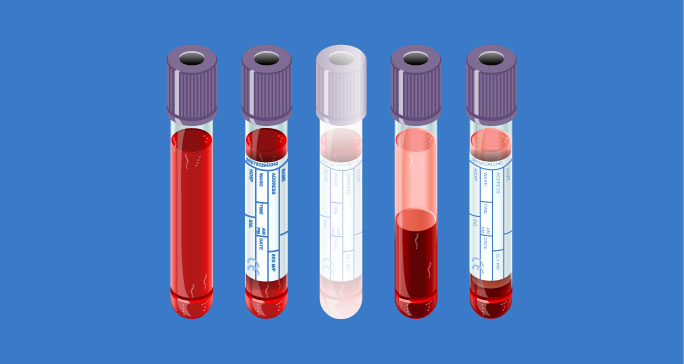- Diseases
- Acoustic Neuroma (16)
- Adrenal Gland Tumor (24)
- Anal Cancer (70)
- Anemia (2)
- Appendix Cancer (18)
- Bile Duct Cancer (26)
- Bladder Cancer (74)
- Brain Metastases (28)
- Brain Tumor (234)
- Breast Cancer (724)
- Breast Implant-Associated Anaplastic Large Cell Lymphoma (2)
- Cancer of Unknown Primary (4)
- Carcinoid Tumor (8)
- Cervical Cancer (164)
- Colon Cancer (168)
- Colorectal Cancer (118)
- Endocrine Tumor (4)
- Esophageal Cancer (44)
- Eye Cancer (36)
- Fallopian Tube Cancer (8)
- Germ Cell Tumor (4)
- Gestational Trophoblastic Disease (2)
- Head and Neck Cancer (14)
- Kidney Cancer (130)
- Leukemia (342)
- Liver Cancer (50)
- Lung Cancer (286)
- Lymphoma (278)
- Mesothelioma (14)
- Metastasis (30)
- Multiple Myeloma (100)
- Myelodysplastic Syndrome (60)
- Myeloproliferative Neoplasm (6)
- Neuroendocrine Tumors (16)
- Oral Cancer (102)
- Ovarian Cancer (176)
- Pancreatic Cancer (160)
- Parathyroid Disease (2)
- Penile Cancer (14)
- Pituitary Tumor (6)
- Prostate Cancer (150)
- Rectal Cancer (58)
- Renal Medullary Carcinoma (6)
- Salivary Gland Cancer (14)
- Sarcoma (238)
- Skin Cancer (300)
- Skull Base Tumors (56)
- Spinal Tumor (12)
- Stomach Cancer (66)
- Testicular Cancer (28)
- Throat Cancer (92)
- Thymoma (6)
- Thyroid Cancer (100)
- Tonsil Cancer (30)
- Uterine Cancer (86)
- Vaginal Cancer (18)
- Vulvar Cancer (22)
- Cancer Topic
- Adolescent and Young Adult Cancer Issues (22)
- Advance Care Planning (12)
- Biostatistics (2)
- Blood Donation (18)
- Bone Health (8)
- COVID-19 (360)
- Cancer Recurrence (120)
- Childhood Cancer Issues (120)
- Clinical Trials (628)
- Complementary Integrative Medicine (22)
- Cytogenetics (2)
- DNA Methylation (4)
- Diagnosis (238)
- Epigenetics (6)
- Fertility (62)
- Follow-up Guidelines (2)
- Health Disparities (14)
- Hereditary Cancer Syndromes (128)
- Immunology (18)
- Li-Fraumeni Syndrome (8)
- Mental Health (120)
- Molecular Diagnostics (8)
- Pain Management (62)
- Palliative Care (8)
- Pathology (10)
- Physical Therapy (18)
- Pregnancy (18)
- Prevention (936)
- Research (390)
- Second Opinion (78)
- Sexuality (16)
- Side Effects (616)
- Sleep Disorders (10)
- Stem Cell Transplantation Cellular Therapy (216)
- Support (408)
- Survivorship (328)
- Symptoms (182)
- Treatment (1788)
What level of lymphocytes is considered dangerous?
3 minute read | Published October 11, 2024
Medically Reviewed | Last reviewed by Elias Jabbour, M.D., on October 11, 2024
Lymphocytes are a type of white blood cell. They help make up our immune system. Because they have cellular memory, any time they’re exposed to a virus, bacteria or other pathogen for a second time, they recognize the danger and start reproducing themselves to fight off an infection. This means they play a vital role in keeping us healthy.
But what’s considered a “normal” range of lymphocytes? Does it mean you have cancer if they exceed or fall below a certain level? And, when should you see a doctor if routine bloodwork reveals you have extremely high or low levels of lymphocytes?
Read on for the answers to these and other questions.
What’s considered a normal lymphocyte range?
A normal white blood cell count is between 4,000 and 10,000 per microliter. About 30% to 40% of those — or 1,200 to 4,000 — will be lymphocytes.
But don’t panic if your lab work shows much higher or lower concentrations than that. The number itself is not necessarily cause for concern. It just tells us that something’s going on. Determining what that is — and if it warrants a closer look — is up to you and your doctor.
When lymphocytes go bad
Normally, once lymphocytes mature, they gather in the spleen and lymph nodes and stay there until they’re needed. Then, they travel throughout the body to combat threats to the immune system.
Lymphocytes only become problematic when they don’t grow or die properly. Cells that refuse to die are considered a hallmark of many cancers. But when it comes to blood disorders, the type of cancer lymphocytes cause depends on how mature the cells get before they start malfunctioning.
Lymphocytes that malfunction in their earlier stages of development typically lead to acute leukemias, while those that malfunction in their latter stages cause chronic leukemias.
Other reasons lymphocyte levels may fluctuate
Cancer is just one reason your lymphocyte levels might be abnormal. Other reasons could include:
- Bacterial infections such as strep throat
- Viral infections such as the flu, COVID-19, cytomegalovirus, RSV and mononucleosis
- Autoimmune disorders such as lupus, rheumatoid arthritis and multiple sclerosis
The key factor in determining whether abnormal lymphocyte levels are due to cancer or something else is seeing if they are monoclonal or multi-clonal.
- Monoclonal means they come from the duplication of just one cell.
- Multi-clonal means they come from the duplication of many different cells.
Lymphocytes that come from more than one cell are considered “reactive,” so they typically point to an infection.
Lymphocytes that are clones of a single cell, on the other hand, are considered “non-reactive.” They can be an early sign of blood cancers, such as leukemia and lymphoma.
To determine whether your cells are reactive or non-reactive, a pathologist will need to examine them under a microscope. This type of analysis must be ordered by a doctor. Regular blood counts only measure the number of each cell type present.
When to see a doctor about abnormal lymphocyte levels
Before seeing a doctor about abnormal lymphocyte levels, it’s important to ask yourself if you really need a consultation.
If you’re fighting off an infection, for instance, and the antibiotics seem to be working, an unusually high level of lymphocytes might be normal for both you and the situation.
But if you’ve been losing weight without trying, feeling excessively fatigued, noticing swollen lymph nodes, or having persistent fevers for weeks even after taking antibiotics, you should probably get checked out.
Elias Jabbour, M.D., is a leukemia specialist with a particular interest in acute lymphocytic leukemia.
Request an appointment at MD Anderson online or call 1-877-632-6789.

Cancer is just one reason your lymphocyte levels might be abnormal.
Elias Jabbour, M.D.
Physician





